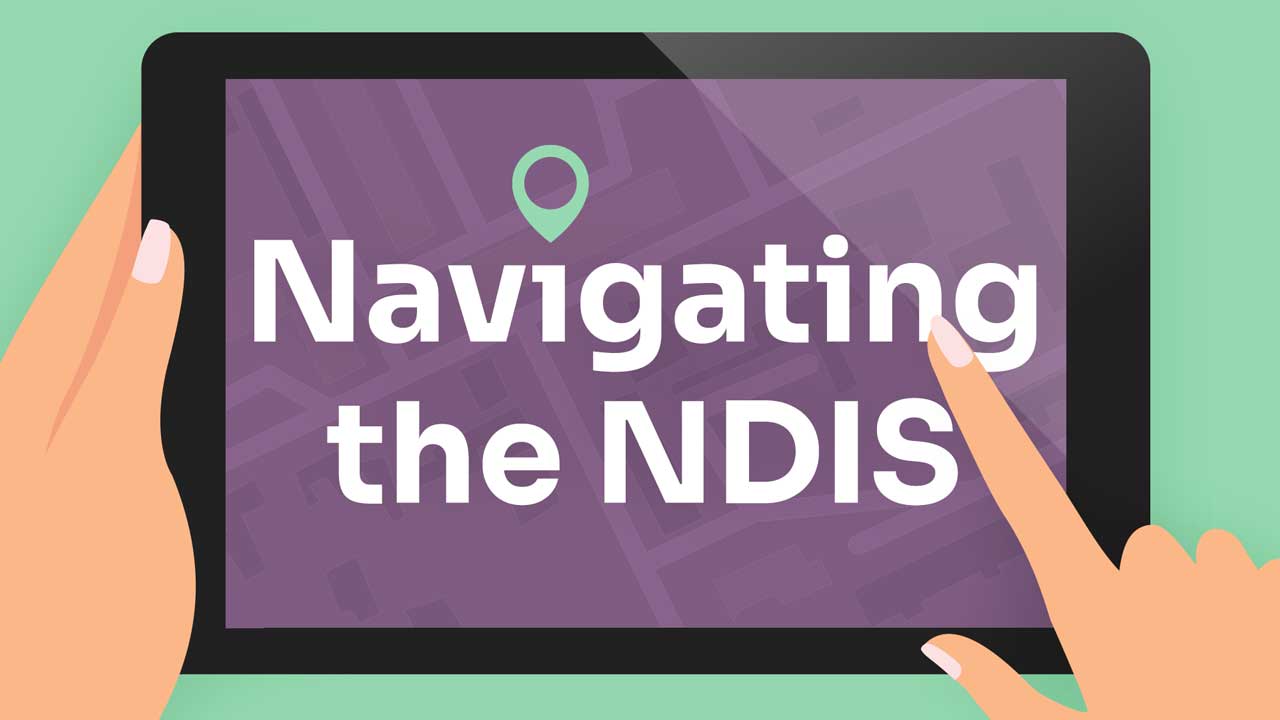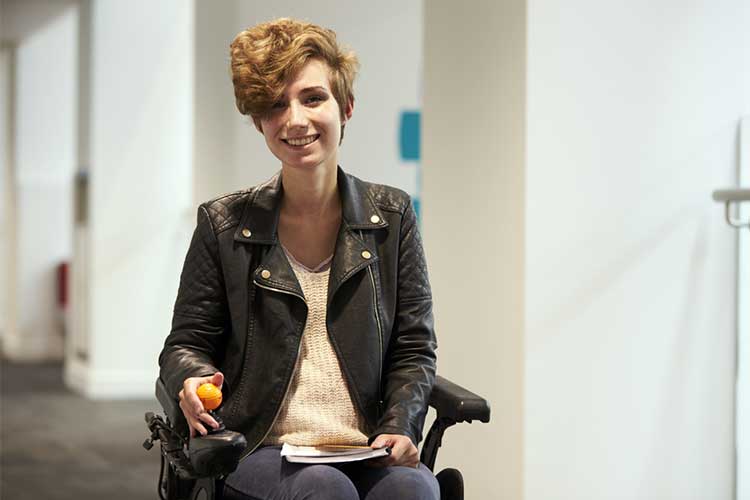Navigating the NDIS: For Participants and Healthcare Professionals
Published: 11 July 2022

Published: 11 July 2022

This article is intended to help healthcare professionals and people living with disability understand, access and navigate The National Disability Insurance Scheme (NDIS).
The following topics will be covered:
The National Disability Insurance Scheme (NDIS) is a government-led initiative intended to support Australians who are living with intellectual, physical, sensory, cognitive and/or psychosocial disability (NDIA 2021a).
Supports offered by the NDIS can range from assistance with daily personal activities, to mobility aids and home modifications, to therapeutic supports (NDIA 2021b).
The NDIS is designed to help eliminate barriers to living a fulfilling and productive life for around 500,000 Australians (under the age of 65) living with permanent and significant disability, providing them with the necessary supports required (NDIA 2021a).
This is achieved by connecting people to services in their communities such as doctors, sporting clubs, libraries and schools, as well as supplying information about what support is provided by each state and territory government (Australian Department of Human Services 2019).
Note: The NDIS is not to be confused as a replacement for the Disability Support Pension – this pension still provides income support through Centrelink to people aged 16 to 65 who are unable to work as a result of their disability (NDIA 2020a).
The NDIS does, however, offer additional funding to meet the particular special needs of a person living with disability, such as buying a wheelchair or having assistance at home (Laragy 2016).

The NDIS was created in response to a 2011 Productivity Commission report on Disability and Care, which found that disability services, as existed in 2011, were:
(NDIA 2021c; Productivity Commission 2011)
In response to these findings, the Commission suggested a system of flexible individual funding packages that could be accessed to purchase disability supports (The Conversation 2016) - hence, the implementation of the nationwide NDIS service.
The National Disability Insurance Agency (NDIA) is the independent government organisation that administers the NDIS.
The NDIA makes decisions regarding whether someone is eligible to become an NDIS participant and, if so, how much funding they are entitled to. This is based on the National Disability Insurance Scheme Act 2013 (NDIS Act), which details supports and services the NDIS will fund (NDIA 2021d).
The term ‘insurance scheme’, reflects the intention of the NDIS: to take a ‘lifetime approach’, providing support where needed and investing in people with disability early on to improve their outcomes later in life (NDIA 2021e).
The NDIS Quality and Safeguards Commission is an independent agency that was established to regulate the safety and quality of NDIS supports and services. The NDIS Commission aims to ensure that NDIS participants receive supports that afford them choice, control and dignity (NDIS Commission 2018).
The NDIS is available in all Australian states and territories.
There are 15 types of supports and services funded by the NDIS. These include:
(NDIA 2021f)
Supports and services that cannot be funded by the NDIS include those that:
(NDIA 2021f)

To be eligible for NDIS funding, an individual must:
(NDIA 2022a, b)
For more information, see the NDIS Eligibility Checklist.
Note: Children aged under the age of seven with developmental delay or disability can access NDIS supports through a separate pathway known as Early Childhood Early Intervention (ECEI) (NDIA 2020b).
Those who are eligible for NDIS funding (or their carers) must apply by:
(NDIA 2021g)
The current Access Request Form requires the participant (with a healthcare professional’s assistance) to address areas such as:
(NDIA 2021i)
The NDIS Access Request Form can be downloaded from the NDIS website: https://www.ndis.gov.au/how-apply-ndis/what-access-request-form
The NDIS has partnerships with local community organisations known as Local Area Coordinators (LACs) (Disability Support Guide 2018).
LACs can assist with:
(NDIA 2020c)
Note that LACs cannot approve an NDIS plan (NDIA 2020c).
Learn more about LACs here: https://www.ndis.gov.au/understanding/what-ndis/whos-delivering-ndis/lac-partners-community
For healthcare professionals: you may need to assist a patient with creating an NDIS plan. A plan is intended to aid the NDIA in gaining an understanding of a participant’s support needs. The planning process can also involve family, carers and significant others (Summer Foundation 2020).
For participants: Your NDIS plan should outline your short-term and long-term goals - i.e. milestones you want to achieve with support from the NDIS as well as other supports and services. Goals should ideally be SMART (specific, measurable, achievable, realistic and timely) (NDIA 2022c).
Examples of goals include becoming more independent, getting a job, learning new skills, enrolling in an educational course, engaging with their community or improving relationships and making friends (NDIA 2022c).
It’s ideal that the planning process is led by the participant (to the extent they want to) and from there, an individualised plan will be devised.

An NDIS plan should take into account the participant’s:
(Continence Foundation of Australia 2021)
The plan should also consider:
(Continence Foundation of Australia 2021)
Healthcare professionals are able to carry out the following tasks:
(NDIA 2020b)
For more information, please see the NDIS’ information for GPs and healthcare professionals, available at: https://www.ndis.gov.au/applying-access-ndis/how-apply/information-gps-and-health-professionals
The evidence you supply to support an NDIS Access Request must relate to the patient’s primary disability that has the greatest impact on their life. Any additional evidence relating to other disabilities that may affect your patient and the impact they have on their functional capacity will also be accepted (NDIA 2020b).
You will need to provide evidence the patient has, or is likely to have, a permanent disability, including information about:
(NDIA 2022d)
You will also need to describe the impact of the disability on the patient’s day-to-day function in each of the following areas:
(NDIA 2022d)

There are three ways in which NDIS participants can choose to manage their funding:
(NDIA 2021h)
The participant may also choose to use a combination of the above options (NDIA 2021h).
In 2016, it was found that only 7% of participants chose to self-manage their funds, while 35% combined self-management and agency management and 58% were fully agency-managed (Laragy 2016).
As a healthcare professional, your compassion, professionalism and guidance can greatly help to facilitate a patient’s NDIS journey.
As a prospective participant of the scheme, remember that you do not need to navigate the NDIS on your own; there are individuals, communities, agencies and resources readily available to you.
It does not need to be thought of as a daunting process.